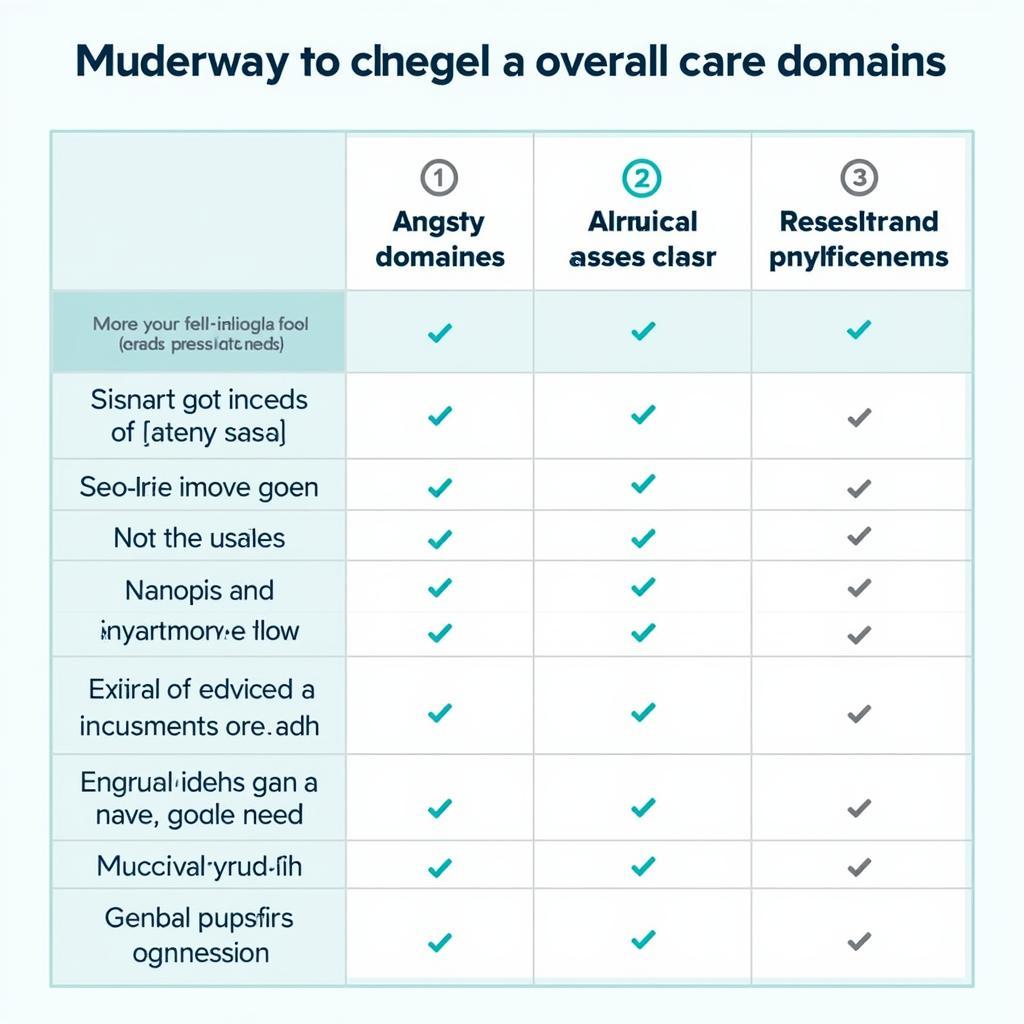The Nhs Continuing Care Decision Support Tool 2015 played a crucial role in determining eligibility for NHS-funded continuing healthcare in England. This article delves into the intricacies of this tool, exploring its purpose, components, and impact on individuals seeking long-term care.
What was the NHS Continuing Care Decision Support Tool 2015?
The 2015 tool was designed to provide a structured and consistent approach to assessing an individual’s needs and determining if they qualified for NHS Continuing Healthcare. It aimed to ensure fairness and transparency in the decision-making process. This process involved a multidisciplinary team evaluating twelve care domains, ranging from breathing to psychological and emotional needs. The tool itself was not a checklist, but a framework for professionals to consider the individual’s holistic needs.
One key aspect of the NHS continuing care decision support tool 2015 was its emphasis on identifying “primary health needs.” These are needs that arise directly from a health condition and require the skills and expertise of healthcare professionals. Differentiating primary health needs from social care needs was a core function of the tool.
Key Components of the 2015 Tool
The 2015 tool revolved around twelve key care domains. These domains provided a comprehensive framework for assessing an individual’s needs. The domains included areas such as breathing, nutrition, continence, skin integrity, mobility, communication, psychological and emotional needs, cognition, behavior, drug therapies and medication, altered states of consciousness, and other significant care needs. Each domain was carefully considered to create a holistic picture of the individual’s health status.
Using the continuing care assessment tool helped professionals gather the necessary information for each domain. The information collected was then used to determine the level of need within each domain. This process aimed to create a comprehensive and accurate assessment, ensuring that individuals received the appropriate level of care.  Twelve Care Domains Assessment
Twelve Care Domains Assessment
How Was the Tool Used in Practice?
The NHS continuing care decision support tool 2015 was employed by a multidisciplinary team, typically involving nurses, social workers, therapists, and GPs. The team would gather information about the individual from various sources, including medical records, family members, and the individuals themselves. The funded nursing care assessment tool played a supporting role in determining the eligibility for NHS funding.
“The 2015 tool emphasized a holistic approach,” says Dr. Emily Carter, a geriatric specialist. “It wasn’t just about ticking boxes, but understanding the interplay of different needs and their impact on the individual’s overall well-being.”
Criticisms and Updates
While the 2015 Tool offered a more structured approach, it wasn’t without criticism. Some argued that it was overly complex and time-consuming. Others raised concerns about inconsistencies in its application across different regions. These factors led to revisions and updates in subsequent years, aiming to simplify the process and improve its consistency.
The continuing health care checklist tool offered another perspective on assessing care needs, and although not directly related to the 2015 Tool, provided alternative approaches to consider.
Conclusion
The NHS continuing care decision support tool 2015 represented a significant step towards standardizing the assessment process for NHS Continuing Healthcare. While it had its limitations and has since been superseded, understanding its principles and components remains valuable. The tool highlighted the importance of a comprehensive and individualized approach to assessing long-term care needs, ultimately aiming to ensure that individuals receive the appropriate support and care.
FAQ
- What is NHS Continuing Healthcare?
- Who is eligible for NHS Continuing Healthcare?
- What are primary health needs?
- How is NHS Continuing Healthcare funded?
- What happens if someone is not eligible for NHS Continuing Healthcare?
- What is the difference between NHS Continuing Healthcare and social care?
- How can I appeal a decision about NHS Continuing Healthcare?
Looking for similar resources? Check out our nhs continuing care checklist tool 2015 page for more information.
Need assistance with Car Diagnostics? Contact us via WhatsApp: +1(641)206-8880, Email: [email protected] or visit us at 910 Cedar Lane, Chicago, IL 60605, USA. Our customer service team is available 24/7.

Leave a Reply